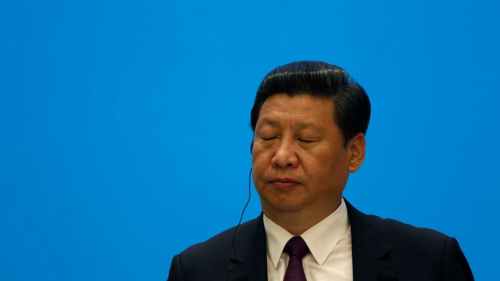Qi Zhiyong, a name previously unfamiliar to me, came to my attention recently through his passing, revealing him as a victim of the June Fourth Incident, a predecessor who once fought on the front lines of democratic activism. Though I am but a small voice, having forced to exile recently, I had not intended to speak on these matters. However, as his passing becomes a trending topic online, I find myself perplexed: Do we truly understand him? Have we genuinely supported him?
Many express their condolences for Qi Zhiyong online, yet few truly comprehend his life story, his struggles, and fewer still extended a helping hand during his lifetime. While we mourn, we cannot evade this awkward but stark reality: how many reached out to him in his times of need?
Furthermore, some individuals symbolically tweet their condolences, seemingly out of obligation. But why bother tweeting at all if it lacks sincerity?
Qi Zhiyong's passing should prompt us to focus not only on mourning but also on the real-life struggles of participants in the democracy movement. We cannot merely express nostalgia for him through words while ignoring our indifference and apathy towards him while he was alive.
Engaging in democratic activism requires faith and dedication, but it also demands tangible support and assistance. This is not just a matter of moral obligation but a reflection of the harsh realities faced by those involved in the movement. We cannot simply post hollow words online while remaining indifferent to them in real life.
Online, some mourn Qi Zhiyong because of his solid contributions to the democracy movement. We need to introspect and ask ourselves: have we truly done anything for him? How many of us genuinely reached out to him when he needed help the most?
Behind the democracy movement are ordinary individuals fighting for ideals. But they are also human, with flesh and blood, living regular lives. We cannot only admire their heroic deeds while turning a blind eye to their real-life struggles. Mourning Qi Zhiyong should involve more than just expressing sentiments online; it should also entail caring about his difficulties during his lifetime and providing him with genuine support.
Online, we see many people mourning Qi Zhiyong, but is this merely a form of consumption, a superficial trend? To those genuinely mourning him, please continue to do so; but if it's only for attention and reputation, then spare him. A person's passing should not become a stepping stone for someone else's advancement.
Beyond mourning, there should be reflection on our past indifference towards him. We cannot let mourning remain confined to words and images; it needs to manifest in actions. We need to support those who fight for ideals in real life, rather than offering insincere condolences after they pass away.
In Qi Zhiyong's story, we see the challenges faced by participants in the democracy movement and their unwavering commitment to their ideals. However, we also see our own apathy and indifference towards them while they were alive. The democracy movement requires financial support, but it should not sacrifice its original aspirations for money, nor should it allow the deceased to become tools for our hypocritical nostalgia.
Qi Zhiyong's passing serves as a warning, urging us to learn profound lessons, cherish those around us, and care about real-life struggles, ensuring that mourning goes beyond mere words and translates into tangible actions.
This article is not targeted at anyone but is simply a heartfelt expression. I acknowledge that there were indeed a few kind-hearted individuals who helped Qi Zhiyong during his lifetime, and I salute you!





